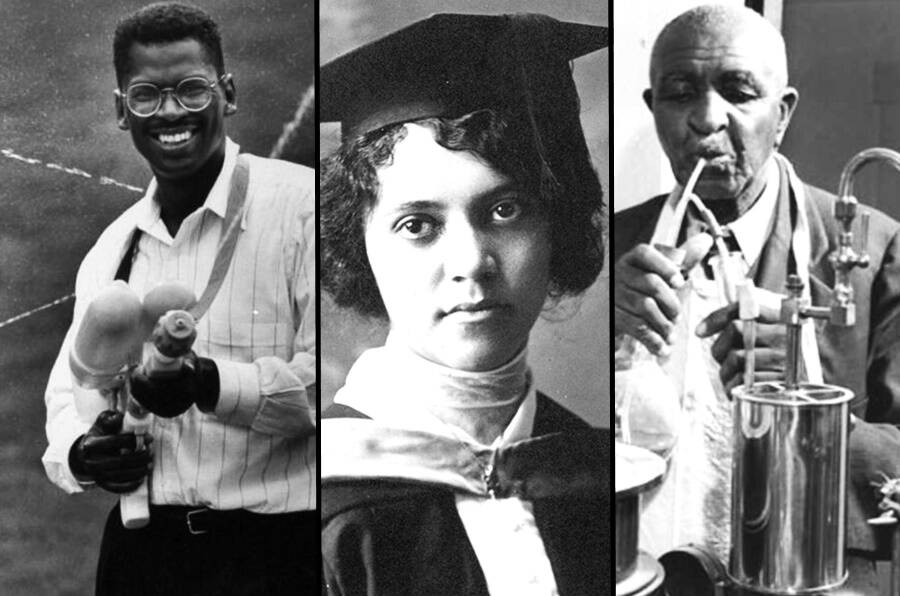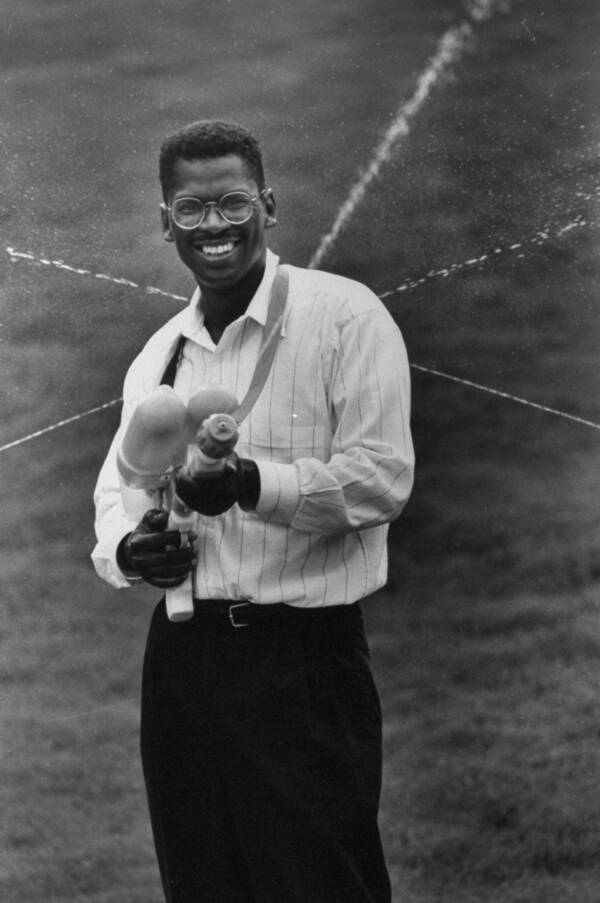From George Washington Carver to Madam C.J. Walker to Lonnie Johnson, meet some of the most iconic African American inventors who shaped history.

Getty/Wikimedia CommonsWithout these Black inventors, modern-day life in America might’ve looked very different.
American history is peppered with some of the greatest inventive minds in the world. But the long history of racism in the United States has led to many Black inventors being discriminated against or marginalized just because of the color of their skin.
For example, Alice Ball was an African American chemist who discovered the first effective treatment for leprosy. But the credit for her brilliance was nearly stolen by a white male academic. There is also the Black innovator George Washington Carver, whose legacy in revolutionizing the food industry was complicated by the racism he endured.
But despite the many challenges they faced, these African American inventors broke through barriers and paved the way for later generations of Black thinkers to succeed in America.
Lonnie Johnson: The NASA Engineer Who Invented The Super Soaker

Thomas S. England/The LIFE Images Collection via Getty Images/Getty ImagesLonnie Johnson is a Black inventor who created the popular Super Soaker water gun.
As a Black child born and raised in segregated Alabama during the 1940s, Lonnie Johnson faced an uphill battle to achieve success. Still, he seemed destined for greatness from an early age.
He had an affinity for at-home science projects, tearing up his younger sister’s doll to examine how its eyes shut, and nearly burning down his house while trying to make DIY rocket fuel. His childhood friends lovingly nicknamed him “The Professor.”
In 1968, young Lonnie Johnson earned first place in the Junior Engineering Technical Society science fair at the University of Alabama — despite being the only Black student in the competition. His winning science creation was a three-foot-tall compressed-air-powered robot named Linex.
“In spite of the things that have been perpetrated on my race – holding us in bondage under slavery, then making it illegal to educate us and then subjecting us to long-term discrimination and criticism – we succeed anyway, to a very large extent. We just need to realize what we’re capable of.”
Johnson’s smarts earned him mathematics and U.S. Air Force scholarships, which helped pay for his tuition at Tuskegee University. He later joined the U.S. Air Force, where he helped develop the stealth bomber program at the the Strategic Air Command.
Lonnie Johnson’s perseverance landed him a job as an engineer at NASA. But his busy schedule didn’t stop him from tinkering with his own inventions in his spare time.
During one of his at-home experiments in 1982, the innovative engineer machined a nozzle and hooked it up to the faucet in his bathroom sink. The customized nozzle helped propel a strong stream of water across the sink, sparking an idea in Johnson’s head that a hyper-powerful water gun would be fun.
The first consumer tester of his Super Soaker prototype was none other than his seven-year-old daughter, Aneka. And after his super-strong water gun became a hit at a family picnic with the Air Force, Johnson knew he had created something big.
By the time the Super Soaker was officially released on the market in 1990 as the Power Drencher, the toy’s potential was clear. Johnson said they didn’t even do any special marketing or TV advertising for the toy, and it still sold well.
The following year, it was rebranded as the Super Soaker — and it made over $200 million in sales by 1992. Since then, it has gone on to annually rank in the Top 20 of the best-selling toys in the world.
Lonnie Johnson’s lucrative toy invention has since helped fund his scientific experiments. With a net worth of over $360 million, the inventor has opened his own research facility in Atlanta, Georgia, where he employs a team of 30 people working on various projects.
He also takes Super Soakers to schools to give talks to children, perhaps inspiring some future Black inventors along the way.
“Kids need exposure to ideas, and they need to be given an opportunity to experience success,” Johnson said. “Once you get that feeling, it grows and feeds itself — but some kids have got to overcome their environments and attitudes that have been imposed on them.”
Lonnie Johnson’s skyrocketing career as an innovator certainly proves that.





